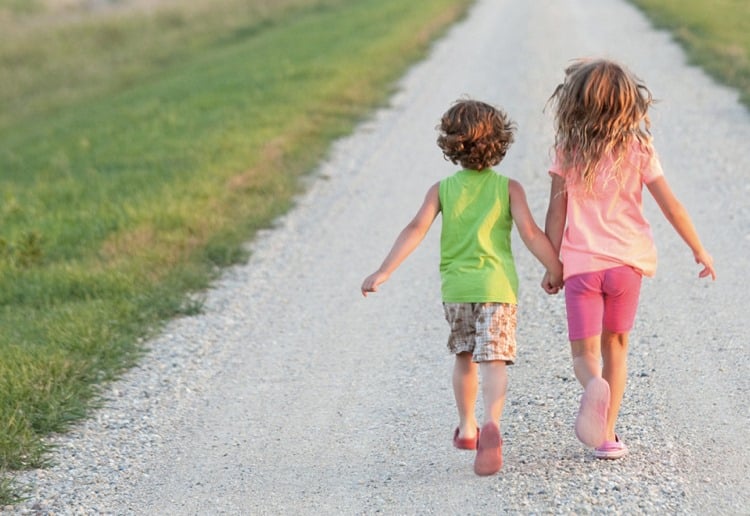Raising inclusive children is a priority in our diverse world but how can you help your kids be more accepting?
Our world is becoming more diverse. People of different races, ethnicities, genders, sexualities, and religions make up the communities we live in. As populations continue to grow and our kids get older, we must open up the conversation of inclusivity.
The current tensions in our world are often racially charged. To see a change in this pattern, educating children on the importance of being inclusive is necessary.
Raising a child is no simple task. There’s no straightforward approach to parenting, but it’s crucial now more than ever to help kids be accepting, tolerant individuals. Here are seven tips you can use to raise inclusive children.
1. Be a Role Model
From a young age, children learn to behave by modeling the actions and behavior of adults around them. Ensure you’re setting a good example for your child.
It’s critical to use appropriate language around your children. Avoid using inappropriate or racial slurs that are damaging and destructive. Treating everyone the same regardless of their race, gender and sexuality will help your child understand that everyone deserves to be treated equally.
If you’re trying to raise a child to be inclusive, it’s essential to look at your own biases and note how you can improve. Reflect on your own childhood experiences and find ways to eliminate bad behavior so your child mirrors an ideal role model.
2. Acknowledge Differences
As you go about your daily activities with your child, whether it’s grocery shopping or taking a drive, children may ask why other people look different than them. It’s best to answer the questions honestly.
People have various skin colors, while others have different abilities or use a wheelchair to move around. Some prefer dating the same gender. It’s no secret that people are different in so many ways, but the key here is to explain that one way is no better than another. There is no superior race, sexual preference, or preferred ethnicity.
Using factual and judgment-free language will help your child understand that differences are OK. It’s what makes living in our world so special.
3. Teach Compassion
Praising children when they behave with compassion is the best way to teach it. We’re all faced with situations where we can choose to be compassionate or not, and it’s best to be kind.
As a role model for your child, view all situations as opportunities to teach them about compassion and kindness. Be sure to explain the value of doing so. When we all lead compassionate lives, the world becomes a better, fairer place for all who live in it.
4. Discuss Respect
There’s a reason why one of the earliest things we learn as a child is the golden rule, “treat others how you want to be treated.” It instills respect into a kid’s life early on, helping them navigate the relationships they build with family members, peers, and friends.
There needs to be a certain level of respect your child gives you as their parent, and the same should go for others. Consider starting a discussion about being considerate and what it means to them. Opening up this conversation will help you outline how to respect people who are different from them.
5. Use Children’s Books
It may be challenging to find a natural way to discuss complex topics regarding race, sexuality, disability, or social status. By age 12, many children already have set beliefs about the way they perceive others. The goal is to have their thoughts be positive, inclusive, and accepting.
Using books as a gateway to conversations regarding these touchy topics will make it easier for you as a parent. You can refer to parts of the book that discuss differences and similarities between others. Diversifying your child’s bookshelf will undoubtedly help them understand why they should be inclusive of others.
6. Ask for Professional Help
There are plenty of online resources and licensed professionals that can help teach your children. Busy families might not prioritize these types of conversations.
It’s a good idea to seek advice from someone educated on the matter you’re trying to discuss. Whether it’s race or sexuality, there are unique ways to approach each topic that best suits your children and how they respond to new information. If it will benefit your family to find other sources to instill these values, it’s certainly worth the effort.
When we educate our children on the harmful effects of unfair biases, we’re setting them up for success in the future. We’re allowing them to freely express their perspectives while also understanding that some phrases can be offensive to others.
It may seem like a daunting task, but educating your child about the impact their words and actions have on other people is necessary. It benefits them, their future, your family, and others who notice their inclusivity.
Do you have a top tip for raising inclusive children? Share it the comments!




















10:22 pm
7:50 pm
-

-
-
mom486197 replied
- 03 Sep 2024 , 9:38 am
Reply8:12 am
2:41 pm
7:37 am
1:38 pm
11:14 pm
1:12 am
11:34 am
6:14 pm
11:47 am
8:58 pm
9:27 am
-

-
-
mom478886 replied
- 29 Jul 2021 , 11:50 am
Reply11:44 pm
12:24 pm
8:19 am
9:56 pm
2:52 pm
7:28 pm
8:41 am
- 1
- 2
- »
Post a commentTo post a review/comment please join us or login so we can allocate your points.